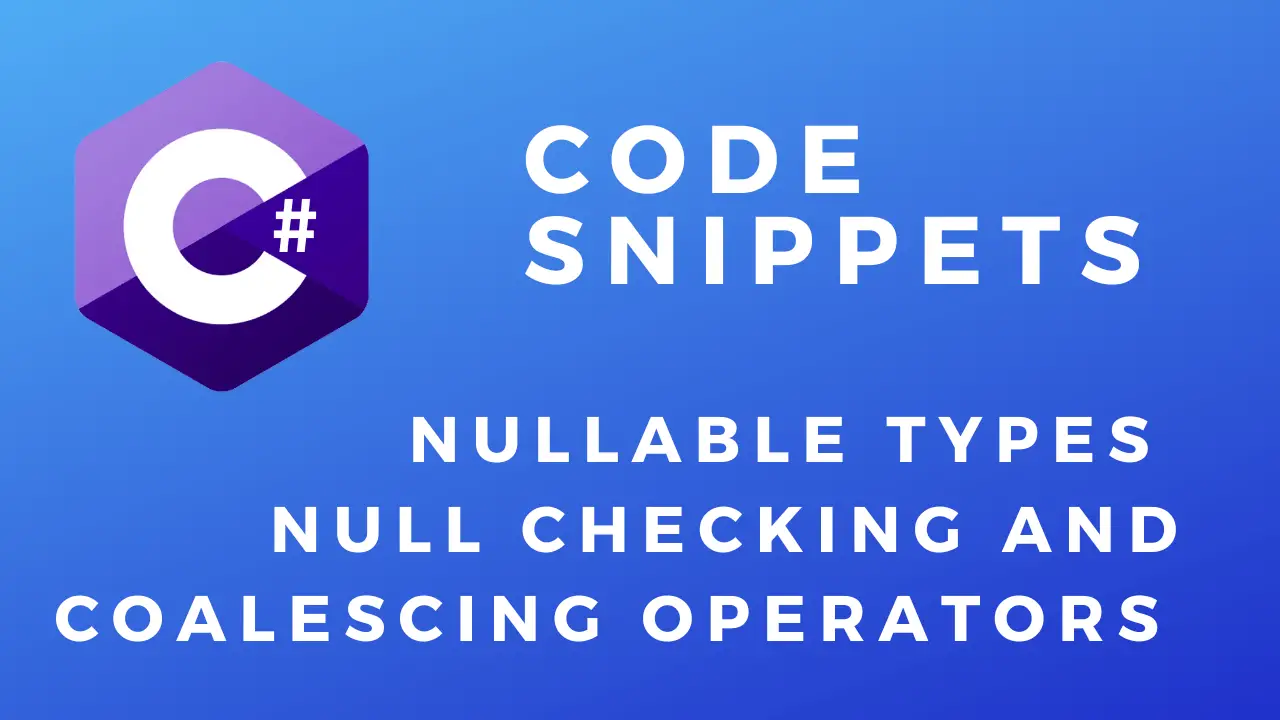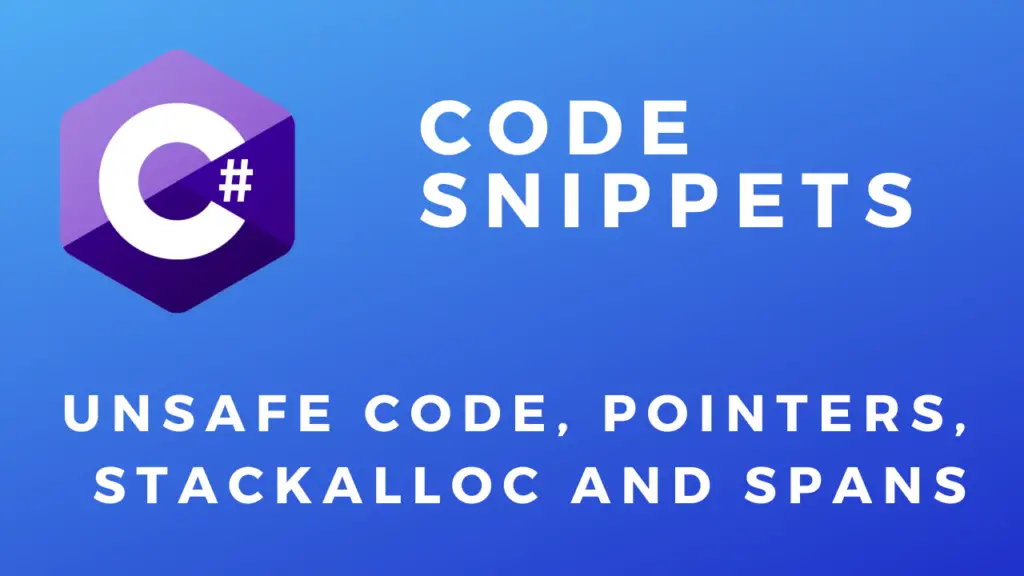About
In this code snippet, we will take a look at the nullable types, null coalescing and checking operators in C#.
Reference types are nullable by default, value types like int for example are not. You can make them nullable by appending ? after the data type declaration like so: int?
If you want to make reference type non-nullable by default you can configure that in your project’s config file. This can help you avoid the all too familiar NullReferenceException. Then ? has to be applied to make them nullable(just like value types).
Null checking and coalescing operators(??, ??= and ?) allow you to deal with null values in a more compact and concise way than using if statements to check if a variable/property/object is null and then access/set its value or members.
Let’s have a look at the code below to see how to use nullable types, null coalescing and checking operators.
Code:
/**************** Nullabe Value Types ****************/ //A string is nullable. string myString = null; //This would give you an error because int is not nullable. //int myInt = null; //You can make a non-nullable type nullable by using ? like so: int? myInt = null; /*****************************************************/ /************** Nullabe Reference Types **************/ //Reference types are nullable by default. This can be changed by addingenable to the config file. //Now all the reference types can't be set to null by default. //Now something like this would give us a warning. string myNotNullableString = null; //You can make non-nullable reference types nullable again by using ? like so: string? myNullableString = null; /*****************************************************/ /************* null coalescing operators *************/ //If myInt is not null it will be converted to a non-nullable int else 0 will be returned int myNotNullInt = myInt ?? 0; //??= can be used to check if a variable is null and assign a specified value to it if that is the case. myInt ??= 15; /*****************************************************/ /************* Null conditional operator *************/ var myClass = new MyClass(); //This throws a null reference exception because MyOtherClassProperty will be set to null. //if (myClass.MyOtherClassProperty.MyProperty > 10) // Console.WriteLine("Number is bigger than 10."); //Usually you would solve this by checking that MyOtherClassProperty is not null and then try to access its members. //This can add a lot of extra null checks especially if you have many nested objects. //The ? null check operator makes it much more compact to check and make sure MyOtherClassProperty isn't null. if (myClass.MyOtherClassProperty?.MyProperty > 10) //If MyOtherClassProperty happens to be null the if will simply be false. Console.WriteLine("Number is bigger than 10."); class MyClass { public MyOtherClass MyOtherClassProperty { get; set; } = null; //MyOtherClassProperty will be set to null by default. public class MyOtherClass { public int MyProperty { get; set; } } } /*****************************************************/







